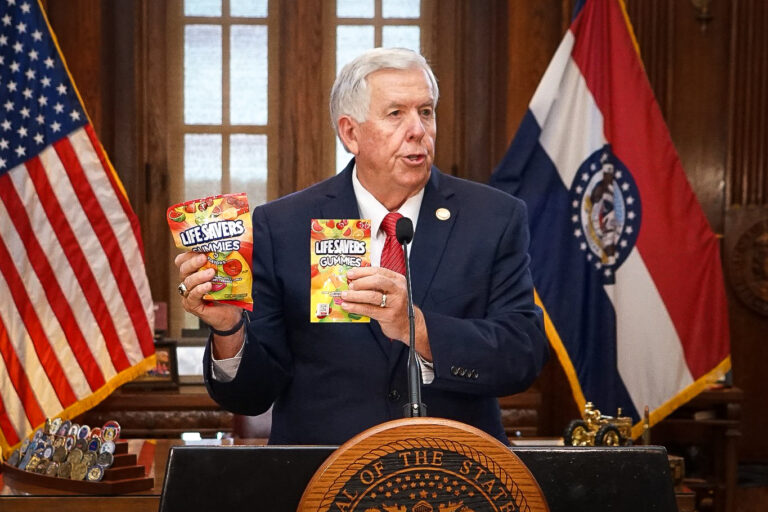State health regulators entered a busy Prime Fuel gas station in Sedalia on Tuesday morning and asked employees if there were any intoxicating marijuana-derived THC edibles in the store. This product was banned by the governor starting September 1st.
Two Missouri Department of Health and Senior Services employees learned that the store had already removed the items from shelves and stored them in boxes in its offices, according to an agency visit report.
The report said regulators called the owner, who voluntarily agreed to dispose of the product.
But Missouri Hemp Trade Association spokesman Craig Katz said that's not how the owners described the incident.
“It looked like he was forced to do it,” Katz said.
Katz said the owners boxed up the items so they could be returned to wholesalers for refunds and explained this to regulators. Instead, he was told that a manager would need to pour bleach on about $5,000 worth of product, a process that Katz said took two hours.
Missouri cannabis leaders file lawsuit to block governor's ban on cannabis THC products
On Wednesday, Missouri Cannabis Trade Association attorney Chuck Hatfield sent a letter to the department's general counsel saying regulators have stripped owners of their right to tell their side of the story to a judge.
“The law is very clear that DHSS does not have the authority to destroy or require others to destroy products without a court order,” Hatfield wrote.
As of 4 p.m. Thursday, state regulators had visited 44 facilities to inspect banned products, said department spokeswoman Lisa Cox.
Cox said regulators found “unregulated psychoactive cannabis products” during inspections at 23 of the 44 facilities.
“Four facilities refused to embargo or destroy the product,” she said. “The remaining facilities have agreed to the embargo and/or destruction of the product. At this time, we are not pursuing litigation.”
Cox declined to comment on Hatfield's letter.
The association said it has heard of three reports of “raids” by state health regulators on stores selling intoxicating hemp products, primarily edibles. Katz said regulators asked owners and store employees to sign a document agreeing to dispose of the product.
“What is happening to Missouri's small business owners is nothing short of disturbing,” Katz said.
The association filed a lawsuit in Cole County Circuit Court on Aug. 30 to block the governor from banning all intoxicating cannabis foods and beverages from taking effect on Sunday. The association argues that the products are legal and that state law prohibits regulators from labeling the products as “adulterated.”
On August 1, Governor Mike Parson signed an executive order to remove all cannabis-derived THC edibles and beverages from store shelves and impose penalties on establishments that continue to sell them.
Because hemp is not a controlled substance like marijuana, there are no state or federal laws that say teens and children can't buy products like Delta-8 drinks or that stores can't sell them to minors, Parson said. said.
There's also no need to list potential effects on the label or test how much THC it actually contains. Hemp industry leaders themselves have pushed for such regulations, but the state Legislature has failed to pass any proposals in the past two years.
Parson said the order's primary targets are companies that sell intoxicating hemp edibles that mimic the popular candy. But cannabis industry leaders say the order would also ban products that are unappealing to children, undergo clinical testing, and are sold only to customers 21 and older.
The order directs regulators to “identify food products containing unregulated psychoactive cannabis products as harmful, toxic, or foreign substances.”
Parson's order says the department has the authority to do this because of state law regarding the procedure for determining whether food is adulterated.
However, Hatfield said the same law also states that “a food product is not deemed to be adulterated simply because it contains industrial hemp or industrial hemp goods or products.” Point out that there is.
The provision was added to Missouri law in 2018 after Congress legalized hemp as part of the federal farm bill. This was part of a Missouri House bill that would bring Missouri's definition of marijuana in line with the federal definition.
There has been no movement on the lawsuit since the association filed it last week.
This article was corrected at 2:30 p.m. to identify Craig Katz as a spokesperson for the Missouri Hemp Trade Association.

